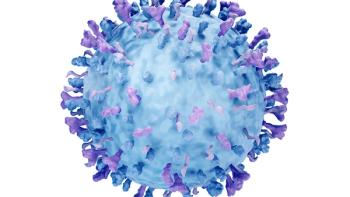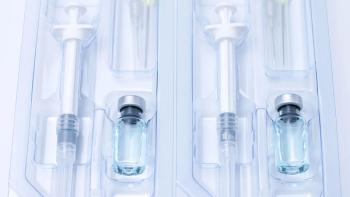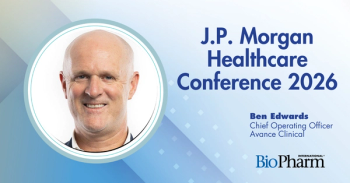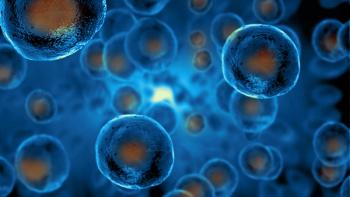
- BioPharm International-07-01-2019
- Volume 32
- Issue 7
Gene Therapies Propel Outsourcing Investment
The increasing growth in the cell- and gene-therapy markets is inspiring CDMOs to expand their services in this emerging biologic drug arena.
Gene therapies are becoming a fast-growing area in the biopharmaceutical industry, creating a crowded pipeline of products in need of manufacturing. FDA expects the agency will receive more than 200 investigational new drug applications for cell and gene therapies by 2020, with the agency predicting that it will be approving 10–20 cell- and gene-therapy products each year by 2025 (1).
Because gene therapies use the patient’s own body to manufacture the active ingredient, the treatment is specific to that patient. This tailoring can often be a more effective and longer-lasting treatment, according to Chris Murphy, general manager for viral vector services at Thermo Fisher Scientific. “Because of these developments, novel, life-changing therapies are being realized that may transform the lives of patients in need.”
This growth is causing contract development and manufacturing organizations (CDMOs) to take a look at their portfolios as their clients require more and more biologics-related services. Catalent has been focused on the clinical pipeline of gene therapies and anticipating the need for commercial manufacturing. “There is an abundance of gene therapy product candidates in the pipeline, and on the heels of market approvals of gene therapy products in 2017 and the influx of venture capital funding for gene therapy companies, FDA approved a second gene therapy this year. We see this as a watershed moment, where gene therapies are gaining regulatory acceptance and setting a precedent for other programs in the pipeline,” says Bernie Clark, vice-president, marketing and strategy, Catalent Biologics & Specialty Drug Delivery.
According to Clark, outsourcing the manufacture of gene therapies requires relatively low volumes to fulfill demand, making it an attractive option. To better service its clients’ outsourcing needs in this area, Catalent acquired Paragon Bioservices, Inc., a viral vector development and manufacturing company for gene therapies with expertise in adeno-associated virus vectors, in May 2019 (2).
Clark believes the acquisition will help Catalent accelerate its growth. “Paragon offers its partners GMP-compliant manufacturing capacity, scale-up expertise, and customized downstream processing without the added time, costs, and risks of building a new viral facility,” says Clark. “The acquisition also brings complementary capabilities that will fundamentally enhance our biologics business and our end-to-end integrated biopharmaceutical solutions for customers. We have also gained the experienced leadership and dedicated team at Paragon, who will continue to run the business going forward, bringing their expertise and capabilities to the Catalent family.”
Thermo Fisher Scientific Inc. took a major step into the viral-vector manufacturing arena with the announced purchase of Brammer Bio, a leading viral vector CDMO, with 600 employees and locations in Massachusetts and Florida. The purchase agreement, announced in a March 24, 2019 press statement, is for approximately $1.7 billion in cash. Brammer Bio joins Patheon, acquired in 2017, and Fisher Clinical Services, which have been combined to form the Thermo Fisher’s Pharma Services business (3).
The acquisition enhances the company’s pharmaceutical and biotechnology customer value proposition by combining cell-culture media, single-use bioprocessing capabilities, analytical instruments, and related consumables. “Brammer Bio is an exciting addition to our Pharma Services business. By sharing our combined capabilities, expanding commercial scale and broadening deep customer relationships, we will strengthen our position as a trusted partner to our pharma and biotech customers. We will accelerate advancements in gene and cell therapy, meet the increasing demand of the customers we serve and bring life-changing medicines to patients in need,” says Murphy.
Viral vector challenges
Viral vectors are crucial to gene therapy because they deliver the therapy into the patient. “Viruses are evolutionarily designed to enter mammalian cells and reproduce themselves. Gene therapy harnesses this feature to transport the genetic material-or ‘active ingredient’-to target tissue or cells. Viral vectors are engineered to be safe for humans and can target specific cells or tissues in our bodies to maximize the effect of the treatment,” says Murphy. Thermo Fisher Scientific’s acquisition of Brammer Bio’s viral vector process development and manufacturing leverages capabilities in the company’s biologics business.
Clark also emphasizes the importance of viral vectors. “During gene therapy biomanufacturing, cells package the therapeutic genetic material into viral vesicles and secrete the vesicles into the media to be purified, then undergo formulation development to be ultimately filled into a vial or syringe,” says Clark. According to Clark, however, few innovators have the capacity, expertise, or resources to manufacture viral vectors. Catalent’s acquisition of Paragon helps the company manufacture viral vectors for their clients. “There are several types of viral vectors that can be utilized for gene therapy. Adeno-associated virus (AAV) is the vector most commonly used today in clinical trials and approved gene therapies, due to its safety and tissue-specific targeting abilities, and Paragon is one of the leading development and manufacturing providers for AAV vectors,” says Clark.
Expanding other services
In May 2019, Thermo Fisher Scientific announced that it is investing more than $50 million into its global bioproduction capabilities. The expansion will provide additional capacity for manufacturing single-use bioprocess container (BPC) systems. In Cramlington, United Kingdom, the company will expand assembly capacity and add BPC systems manufacturing. The proximity of these capabilities to customers in Europe will shorten lead times and improve overall global efficiency, according to the company (4).
In the United States, the company will expand cleanroom space for BPC chamber and related assembly production processes at its site in Logan, UT, and further expand capacity at its site in Millersburg, PA. Construction is expected to be completed by the end of 2020.
“The demand for our bioproduction products and services continues to outpace the market,” said Cory Stevenson, president of Thermo Fisher Scientific’s bioproduction business, in a company press release. “These investments will expand capabilities across our existing bioproduction network while we look to extend our footprint into new regions to meet increasing customer demand for our industry-leading single-use technologies.”
To further develop its biologics offerings, Catalent is launching OneBio Suite, a new offering for the integrated development, manufacturing, and clinical supply of biologic drugs. The Suite is designed to address challenges that arise when accelerating programs to clinic or market, while also Âreducing Âcomplexity and risks from projects. The OneBio Suite is built on Catalent’s track record in biologic drugs development, which includes more than 115 global clinical trials and 11 commercially marketed monoclonal antibodies using the company’s GPEx cell line development technology, and 20 approved products through fill/finish and commercial supply to global markets, the company reports. According to Clark, the company has multiple initiatives in the works to shorten timelines and increase efficiency (5).
“Time is often lost for sponsors on the path to clinic from contract negotiation, site inspections, handoffs, and poor communication between multiple vendors,” commented Clark in a press statement announcing the service. “Through our new OneBio Suite, Catalent is uniquely positioned to provide an integrated offering that can accelerate biologic development potentially shaving weeks to months off standard timelines and allowing our customers to get to clinic and market faster.”
References
1. FDA, “Statement from FDA Commissioner Scott Gottlieb, M.D. and Peter Marks, M.D., Ph.D., Director of the Center for Biologics Evaluation and Research on New Policies to Advance Development of Safe and Effective Cell and Gene Therapies,”
2. Catalent, “Catalent To Acquire Gene Therapy Leader Paragon Bioservices, Inc. for $1.2 Billion,” Press Release, April 15, 2019.
3. Thermo Fisher Scientific, “Thermo Fisher Scientific to Acquire Brammer Bio, a Leader in Viral Vector Manufacturing,” Press Release, March 24, 2019.
4. Thermo Fisher Scientific, “Thermo Fisher Scientific to Invest $50 Million to Expand Bioproduction Capabilities,” Press Release, May 20, 2019.
5. Catalent, “Catalent to Launch OneBio Suite For Integrated Biologics Development, Manufacturing and Supply at BIO International 2019, Press Release, May 23, 2019.
Article Details
BioPharm International
Vol. 32, No. 7
July 2019
Pages: 8-9
Citation
When referring to this article, please cite it as S. Haigney, "Gene Therapies Propel Outsourcing Investment," BioPharm International 32 (7) July 2019.
Articles in this issue
over 6 years ago
FDA Revamps Biosimilar Quality Requirementsover 6 years ago
Playbooks Are Not Just Child’s Playover 6 years ago
Applying QbD to Upstream Processingover 6 years ago
A Biologics Partisan Divideover 6 years ago
Analysis of Residual Impurities in Continuous Manufacturingover 6 years ago
Removing Gaps in Data Integrityover 6 years ago
Catching Up Downstreamover 6 years ago
Up-to-Date Systems Streamline OperationsNewsletter
Stay at the forefront of biopharmaceutical innovation—subscribe to BioPharm International for expert insights on drug development, manufacturing, compliance, and more.




